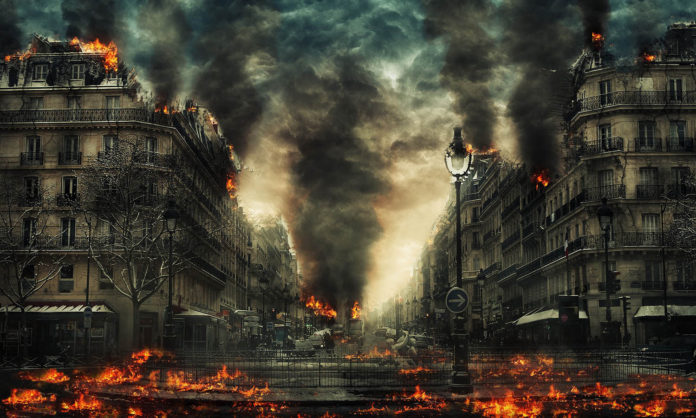
In a new blog post, Janice Hardy says that forcing your characters to confront the worst thing that can happen might be the worst thing you can do for your story. “The ‘worst thing that can happen’ is often an empty threat,” she says.
Usually, “the worst thing” is death, but when you almost-but-not-quite kill your protagonist, the threat loses its impact. With rare exceptions, the reader understands that the author isn’t going to kill the protagonist midway through a novel. “Death, total disaster, irreconcilable differences…The ‘worst’ encompasses so many things, and most of them aren’t personal enough to the protagonist and characters to really, truly, matter,” Hardy writes.
Of course, the more trouble you create for your character and the more obstacles they face, the stronger your story. However, many writers default to death as the worst thing that could happen. Instead, the “worst” is subjective to your story, and is dependent on your protagonist’s backstory, motivations, and goals.
Hardy says there are three reasons to avoid doing “the worst thing that can happen” in a story:
- It usually stops the plot cold. Once the worst thing happens, it’s hard to backtrack. Once someone has died or someone’s life is ruined, where else can your story go?
- Your characters could become unsympathetic. If the worst happens, and your characters go on as if nothing happened, the reader will wonder the stakes mattered or if your characters are heartless.
- Future stakes become flat. “Unless the worst happens in the climax, you can no longer escalate the stakes, and the tension will drop like a rock,” Hardy says. “It’s even worse if the characters all survive it, because now readers know they can handle whatever is thrown at them during the story.”
When you throw “the worst” at your characters over and over, your readers will stop caring. Worse, the effect can seem comical. “The last thing you want is readers chuckling over a moment that’s supposed to be scary, or exciting, or tug at their heartstrings,” Hardy writes.
So what to do instead? “Instead of the ‘worst thing that can happen,’ look for the ‘worst outcome for that situation,'” Hardy suggests. Every scene will have a different “worst” outcome that can actually happen. Characters can fail, be hurt or humiliated, make mistakes, and be forced to question their hardcore beliefs. Those outcomes can be the worst for an individual scene without being life or death stakes. Because they are more realistic, there’s a greater chance your reader will relate to these story moments.











